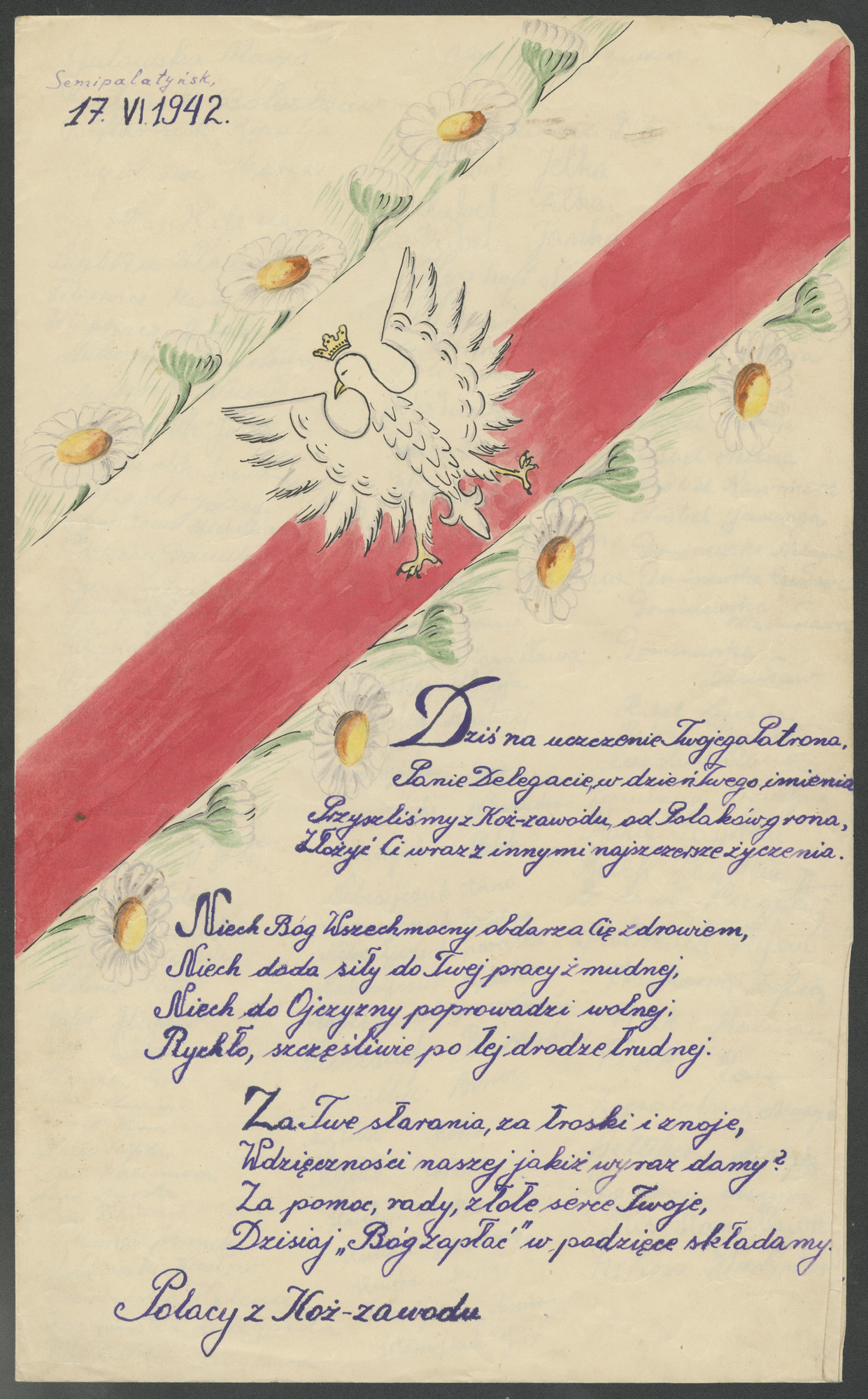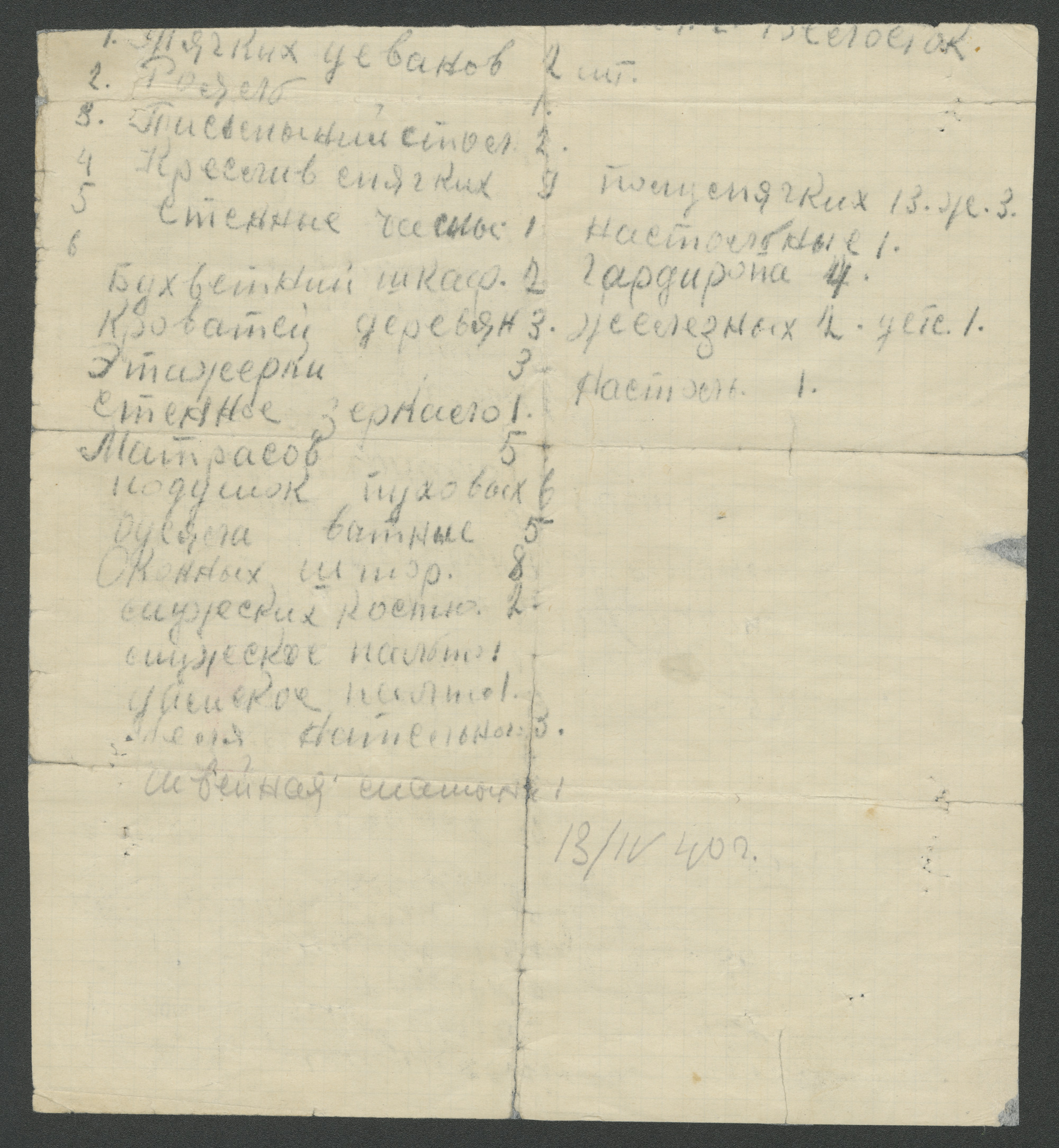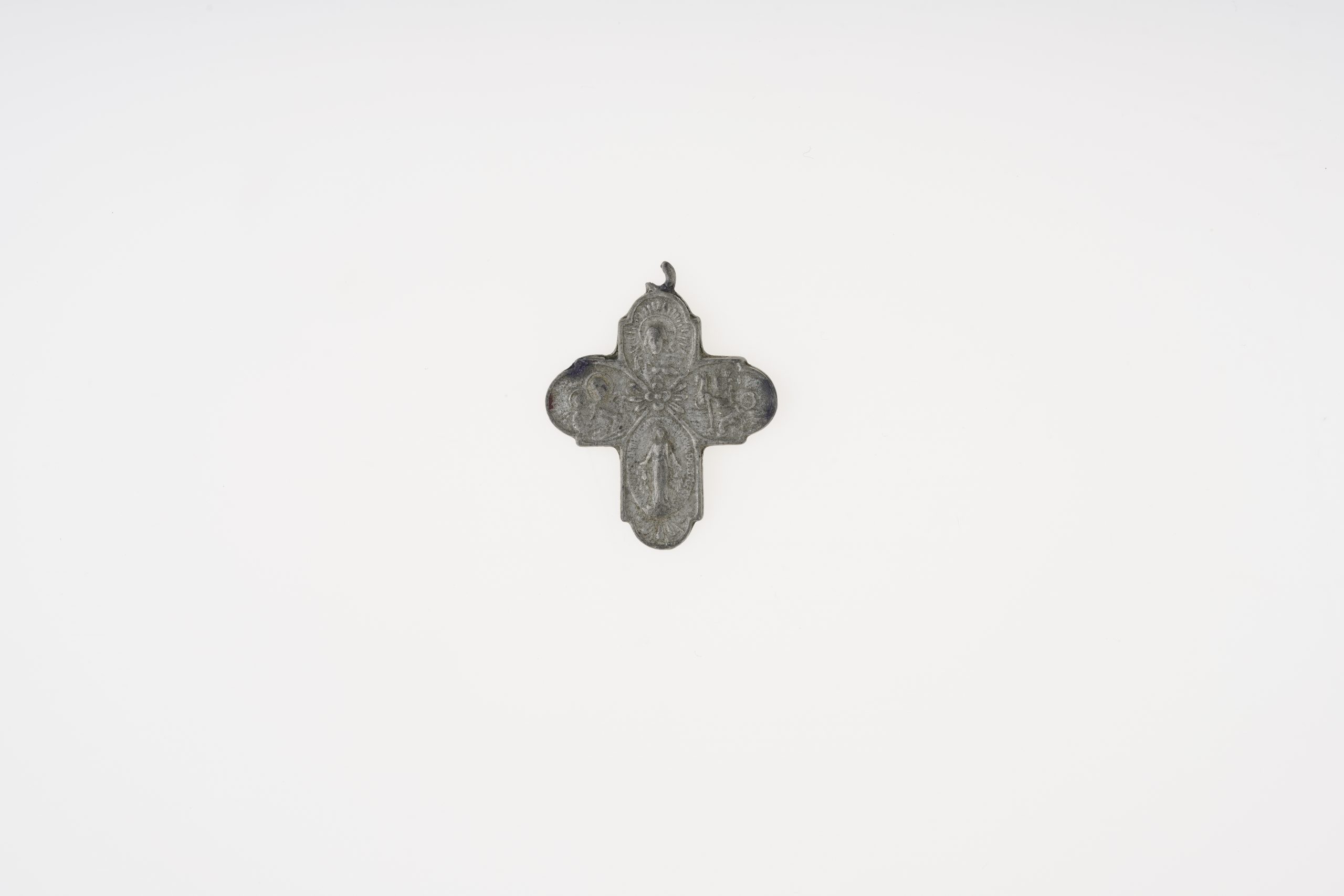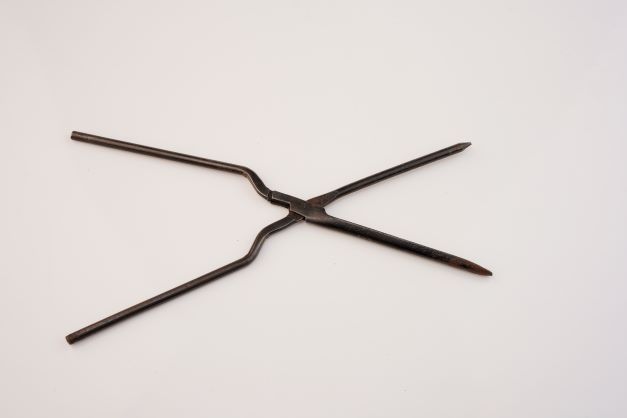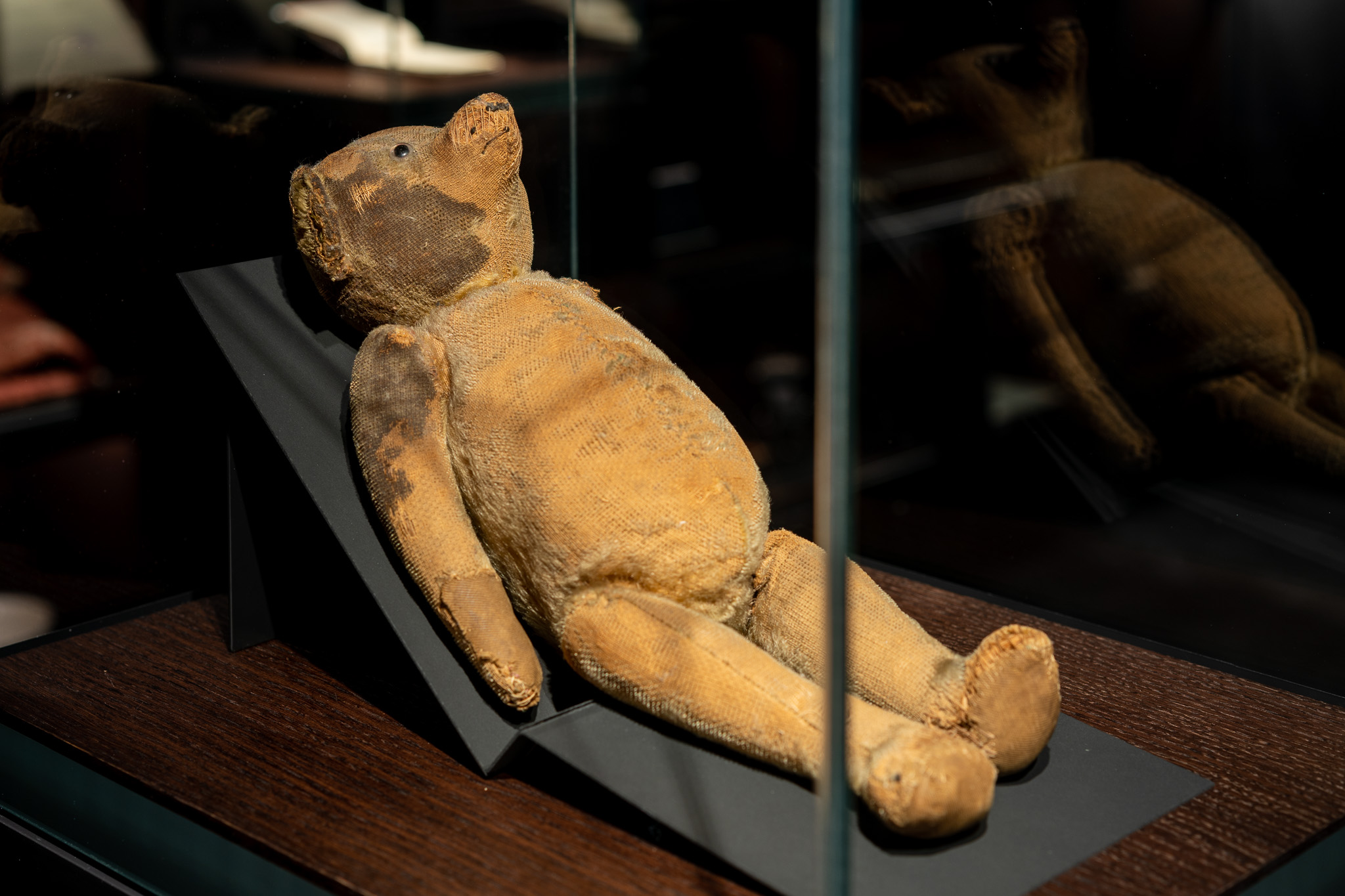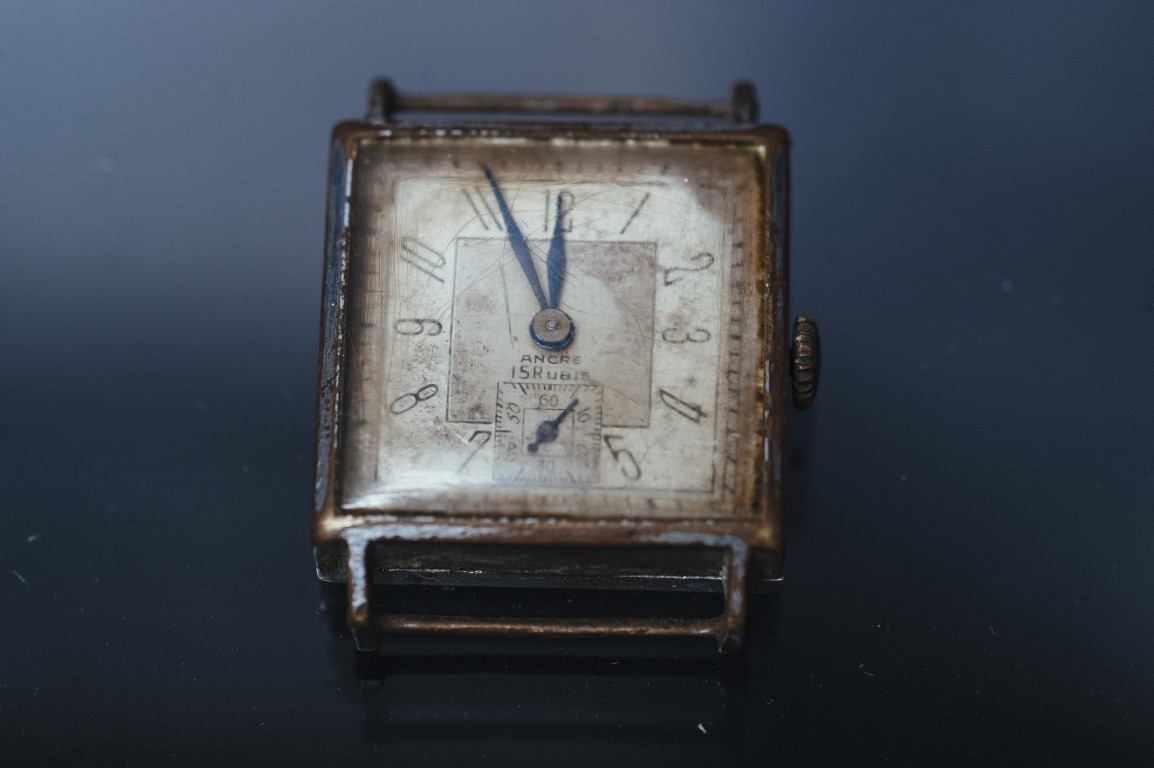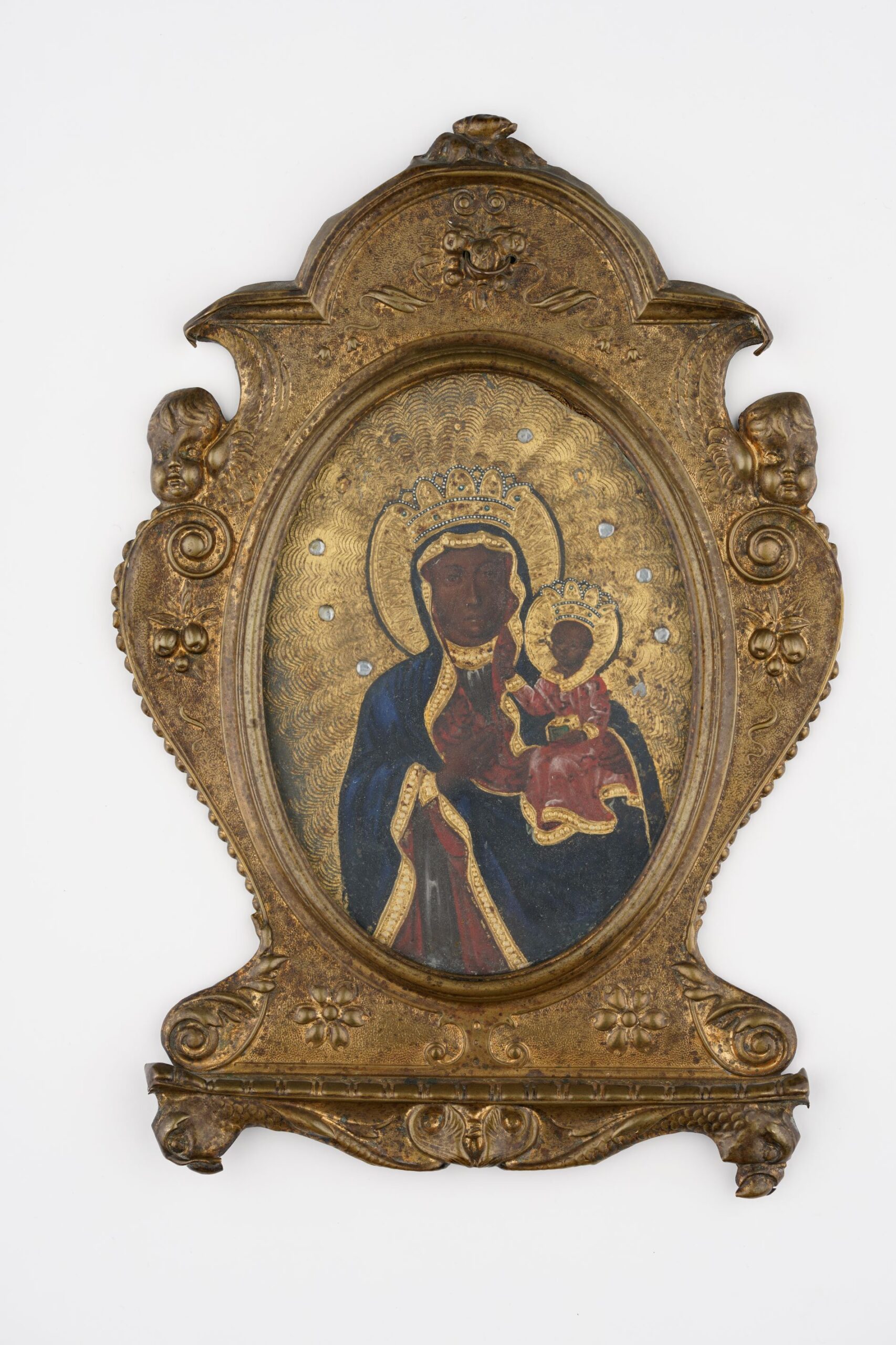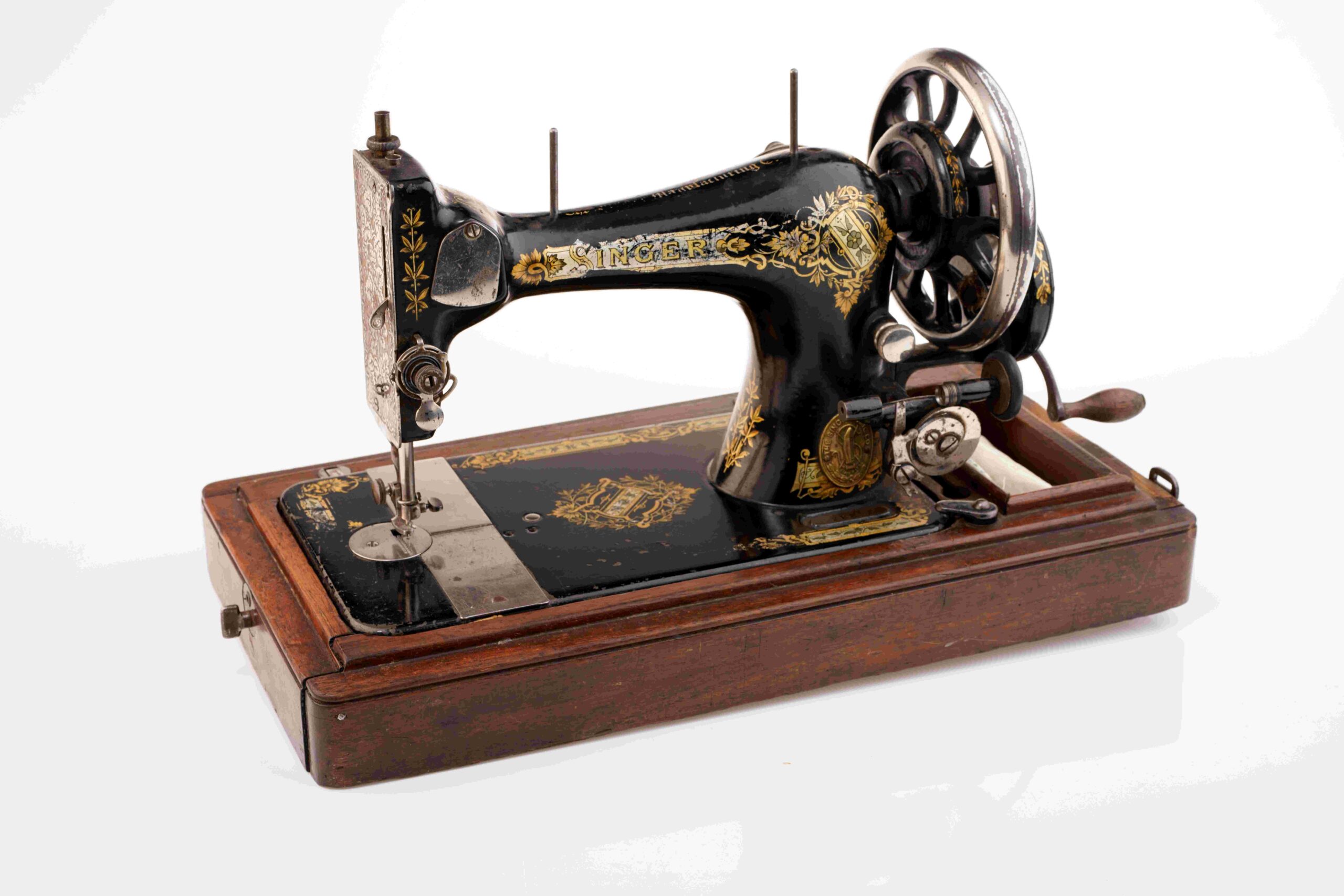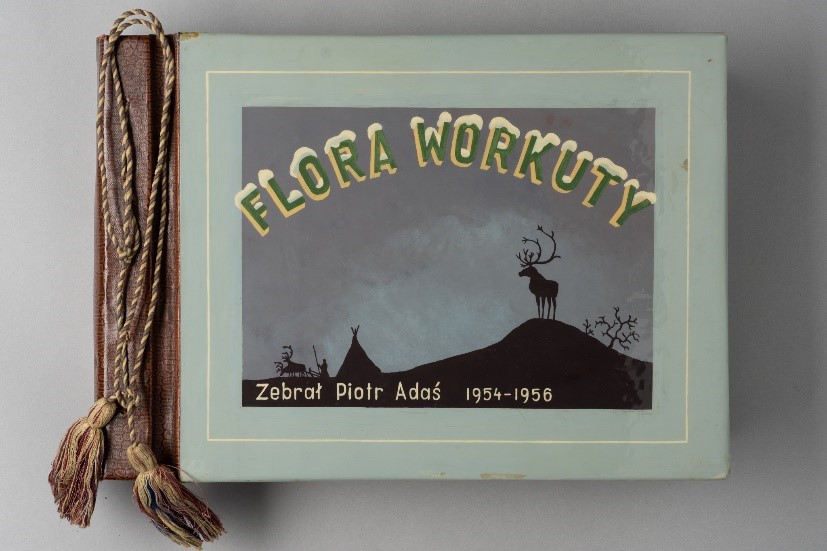collections
Greeting-card given to Adolf Saraniecki, delegate of the Polish Embassy in Semipalatinsk, by his countrymen from Koż-Zawod on June 17, 1942.
The Klein family was deported from Bialystok on April 13, 1940. Soviets made a list of items left by the family.
In September 1939 Władysława Chytła was 17 years old and had just finished the School of Industry and Commerce in Sanok. She went on holiday to her family to Chernavchitsy near Brest-on-the-Bug. When the Soviets entered, she couldn’t return home. She was deported on February 1940.
How could a hair curler be useful to those deported to Siberia? Amelia Sieczko and her family were deported by the Soviets in February 1940 to the hamlet of Zielony Bor in the Vologda region, far north-east of Moscow. She probably grabbed the curler in a hurry and packed it away with many other rand
This teddy bear belonged to Renia Jackowska. Renia was only 7 years old when she was deported to Siberia with her mother, to the Irkutsk Oblast.
This inconspicuous, dilapidated watch was bought by 13-year-old Walenty Jabłoński at the end of the Second World War in a bazaar in Grodno. The Jabłoński family remained in the Eastern Borderlands after the war, and Walenty himself began to study medicine after completing secondary school. Howev
Since the 19th century, this gorget had belonged to the Szrodecki family, the owners of the Kożany estate in Podlasie. According to family history, the gorget was in Siberia for the first time with Konstanty Szrodecki, who was sent to Siberia for his participation in the January Uprising. With the
The Singer sewing machine became, years later, one of the symbols of the 1940-1941 deportations. A skilful seamstress could use it to create miracles out of almost nothing, with which she was able to obtain bread, medicine or warm clothing. Sometimes, however, bad luck or blind luck rendered the mac
In the collection of the Sybir Memorial Museum is a herbarium brought to Poland by Jozef Krypajtis. It consists of 102 pages and contains specimens of some 130 species of plants found in the vicinity of Vorkuta, ranging from seaweeds, fungi and mosses to seed plants. The full information in Polish i





